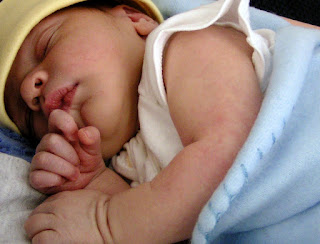Relationships with humans are hard.
I’ve been having interesting conversations with folks about teens, rebellion and the ‘need’ (experts tell us it’s a need, so it must be, right?) for children to butt heads with their parents in order to leave the nest.
I’ve written about this before, but today I’m thinking about it from a slightly different angle… in a conversation about ‘normal teens,’ in response to this:
Some children really DO need to "butt heads to leave".
I said this:
In the same way that people who are genuinely frightened (the result of a break-in, or even a physical attack) start arguing when they don’t know what else to do with their fear, people who are leaving or on the verge of being left will often lash out, because they simply don’t know how to handle the fears or the overwhelming feelings that come with large life changes.
I’ve lived in a navy family my whole life, first as the daughter of a sailor, and later married to one (still). I am experienced in the leavings (and returns) of loved ones… and I’m familiar with the dysfunctional and the enlightened ways of handling both.
Dysfunctional is what is considered the norm: depression, lashing out, infidelity, worry, ptsd, insomnia, ocd… the list goes on and on. But however ordinary and common those responses are, they’re hardly enlightened or even helpful. They are simply what people do with overwhelmingly large emotions when they don’t know what else to do.
It’s not surprising that people don’t know what to do –culturally, we don’t know what to do, we have few models of more enlightened or mature responses, and few teachers who could pass that information on. If I had a nickel for every time someone said to me, ‘I could never cope with my partner leaving’ or ‘how do you manage?’ I’d have a room full of nickels. And, it took me a long time to stumble across healthier ways of handling it.
Children leaving home brings up the same kinds of overwhelm, for themselves and their parents –and their friends, and their siblings… and we end up with the Freshman 15 (kids who eat to displace their feelings when they’re at college the first year) and Empty Nest Syndrome (for parents who can’t sit through long-distance ads without bursting into tears), et cetera.
There are two keys, I found, to understand comings and goings:
1. worry and,
2. control
There are two primary reasons people mind so much, life transitions of this kind: they don’t know what’s going to happen, and they don’t like feeling out of control of what’s going to happen. So they worry –that’s personal and internal stress that just adds to the real issues in their world—and they seek to control what they can reach, which is generally the other people close by. [I think it’s hilarious how rarely most people think of themselves when they’re looking around for something to control.]
Now, how to avoid and minimize both of those is a completely other post for another day, but that’s the core of it: children who express an apparent need to butt heads are picking #2. Parents who become depressed, teary or insomniac are using #1. Lashing out and ocd are #2. PTSD is #1.
Handling comings and goings with equanimity is hard:
- it’s hard to lean into the pain of separations, to know that the pain is not just okay, but perfect
- it’s hard to open a lifestyle up when someone comes home after the heartspace they had lived in has healed
Neither are anywhere near as hard as the results of lashing out, butting heads, depression… et cetera.





